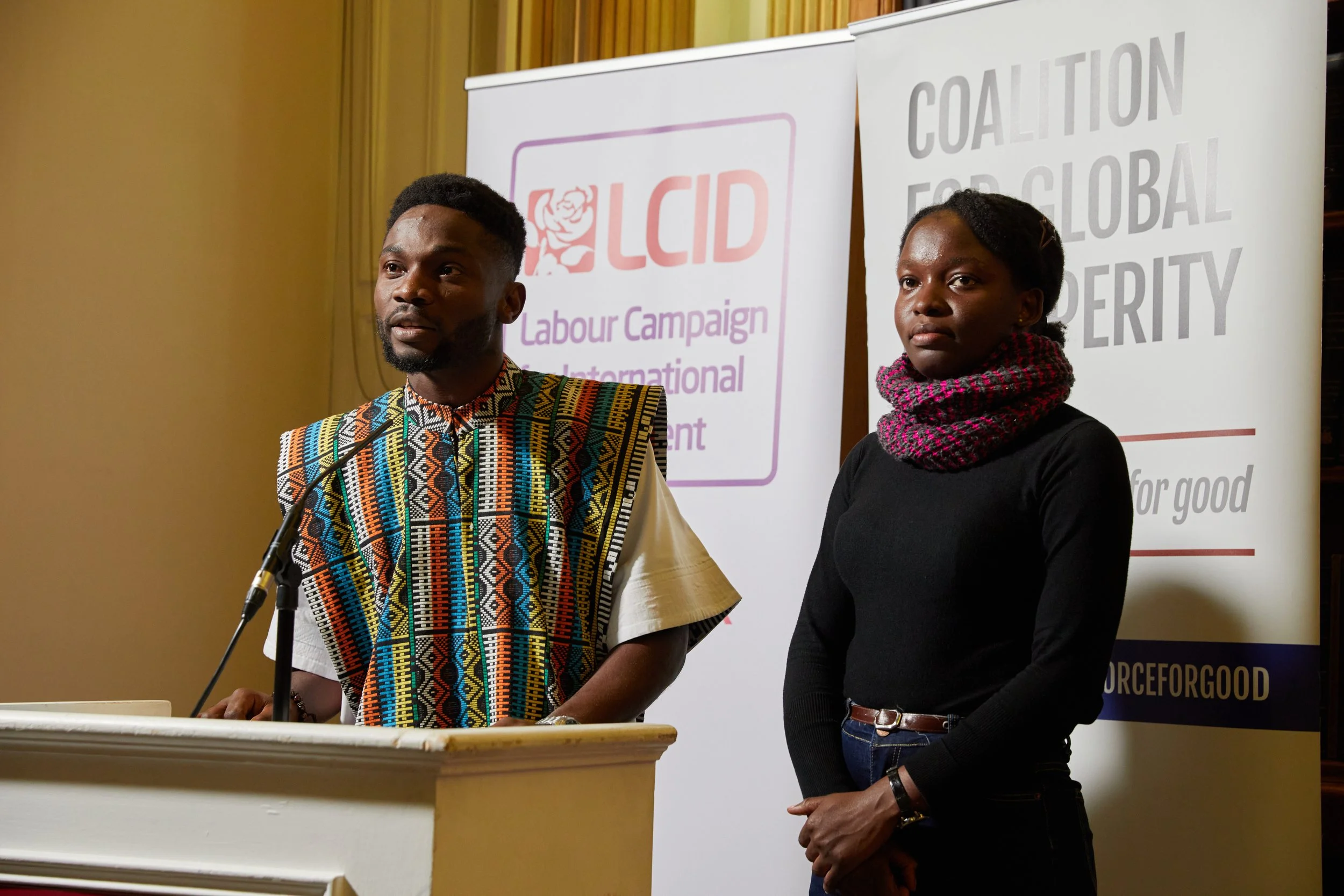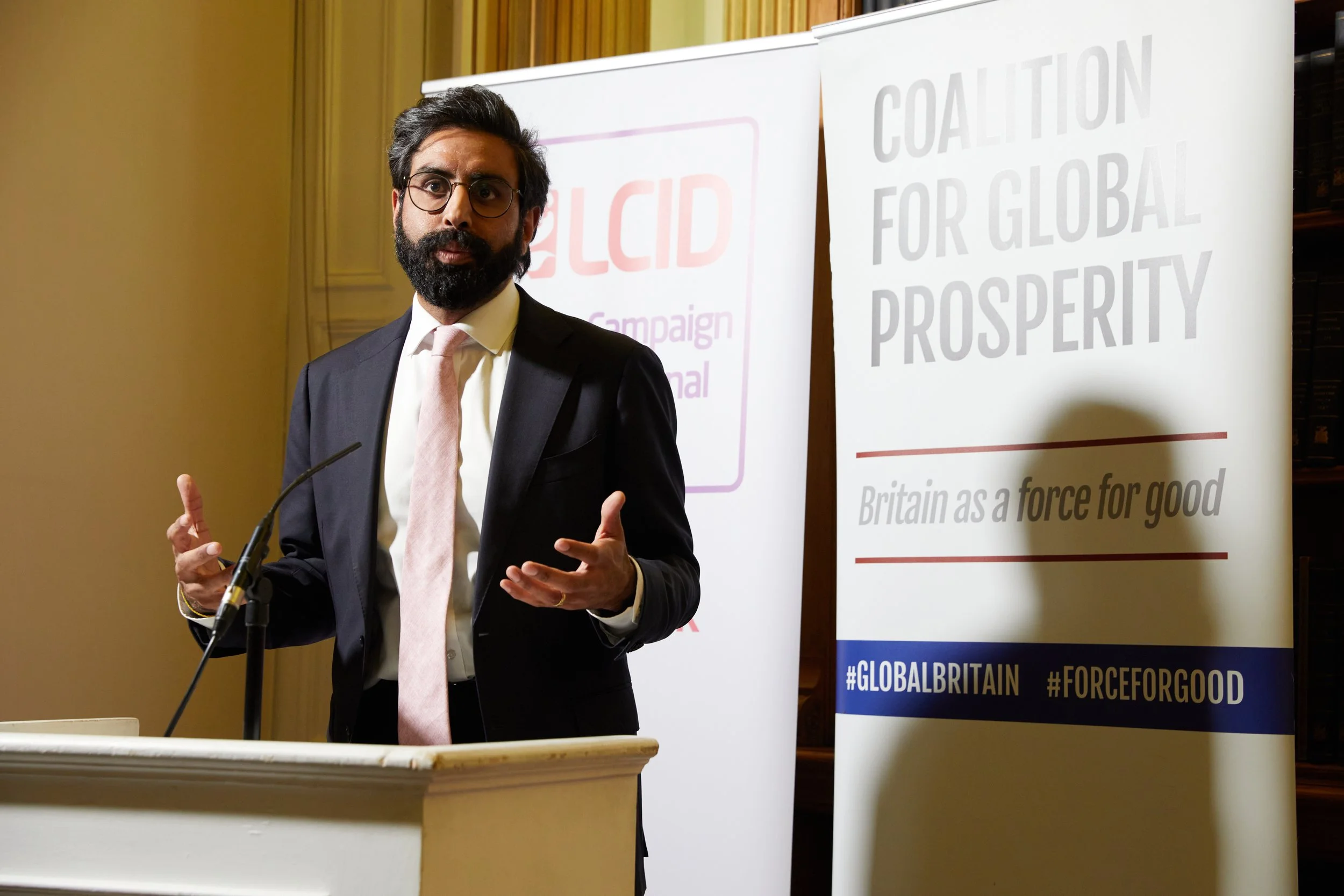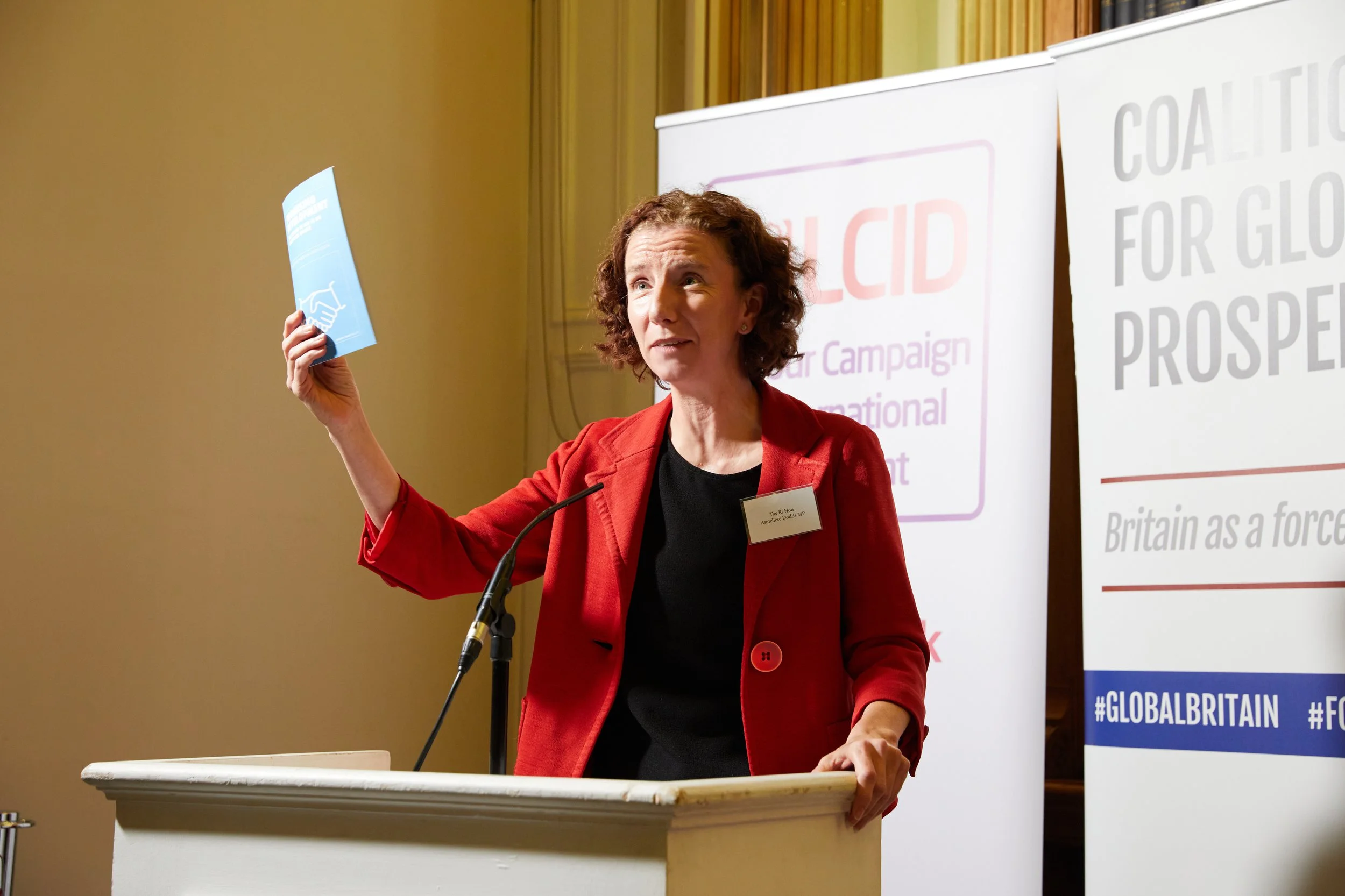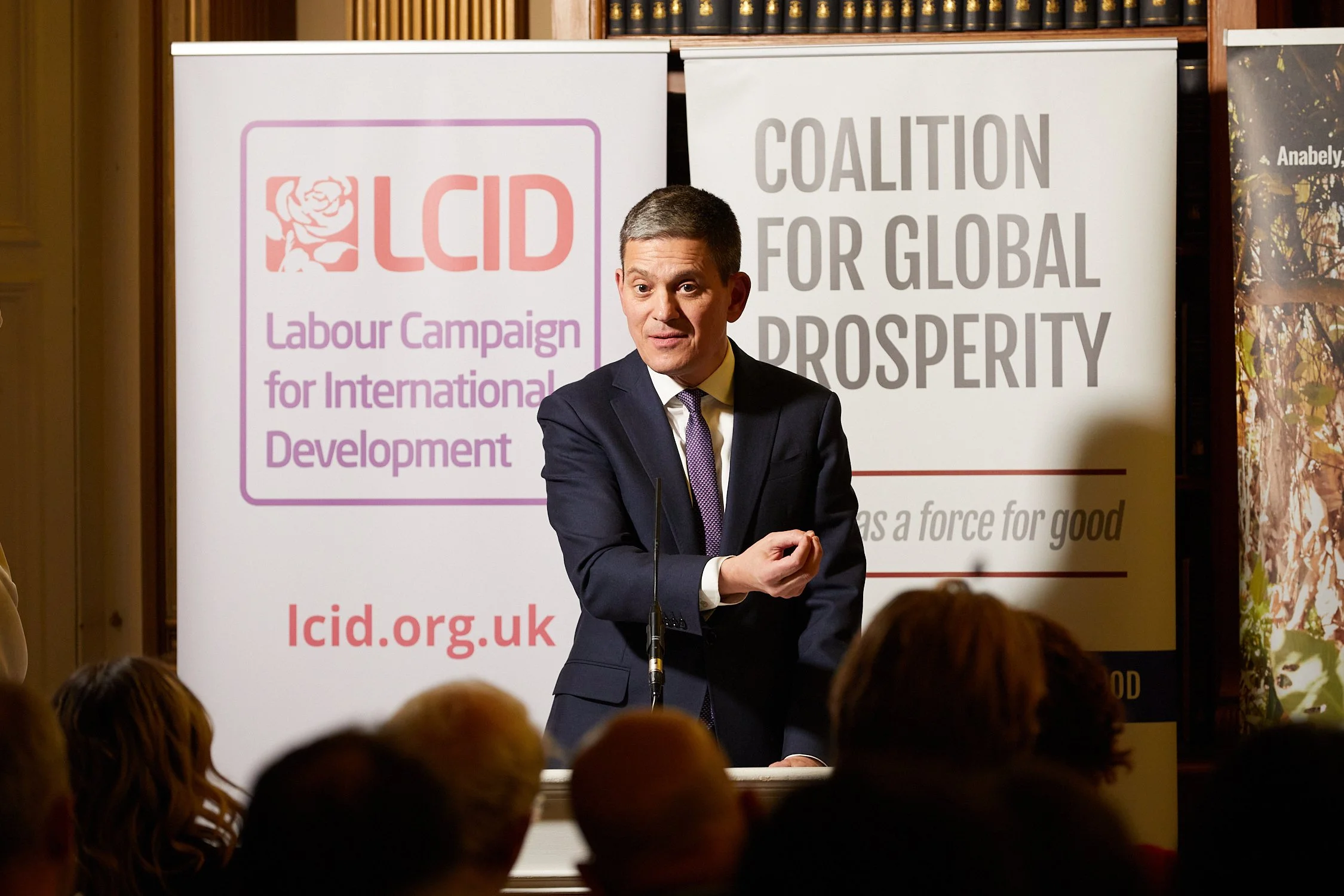Essay Collection Launch with the Rt Hon David Miliband
On Monday 17 November, we were delighted to launch Promising development: The future of aid in an uncertain world, a new essay collection produced in partnership with The Fabian Society, the Labour Campaign for International Development (LCID), and Save the Children. The event brought together policymakers, practitioners, and advocates to explore how the UK can maximise the impact of its aid investment at a time of global uncertainty.
Opening the discussion, Heather Staff (LCID) and Joe Dromey (Fabian Society) stressed the need for practical, workable ideas from Labour to rebuild public consensus around international development. As Dromey put it, “Labour has a proud record on international development, but that is a record that is at stake.”
Finian Ali (Scaling Up Nutrition Civil Society Youth Network, Nigeria) highlighted both the UK’s long-standing contributions to global development and the human cost of recent retrenchment. Stepping back from commitments, he warned, risks “removing hope from millions.” Recalling years when UK ODA stood at 0.7 percent of GNI, he noted that “the UK showed the world it was not alone.” Finian described meeting an eight-year-old boy in Nigeria who had not eaten that day but “maybe later” - one story that is emblematic of the urgent needs faced by millions. For many families, he said, “hope is counted in hours.”
Finian ended with noting that he himself was a product of UK aid, specifically a DFID programme aimed at transforming men’s attitudes towards gender norms. “I was the best in the programme,” he joked, recalling how strongly he once held patriarchal views of women’s place in society, and the way that the programme challenged those beliefs: “When I changed, I changed.”
Nana Yohari (Scaling Up Nutrition Civil Society Youth Network, DRC) offered another powerful reflection on the lived realities behind development statistics. She reminded the audience that “behind the statistics are real people: a mother, a father, a child, whose life has been turned upside down.” Speaking of families in her home country, the Democratic Republic of the Congo, she described how conflict had robbed many not only of shelter but of their sense of safety and identity. In such contexts, she stressed, UK aid plays a vital role “to restore hope when hope feels impossible.”
Turning to policy and priorities, Dr Jeevun Sandher MP outlined how the UK can continue to lead in international development despite a reduced aid budget. He reminded the audience of the impacts of the debt crisis across many parts of Africa, and that “when many African nations are spending more on debt interest than healthcare, it undermines their ability to support their own development… We do better when everyone on this planet does better.” Sandher argued that the UK should focus on tackling the global debt crisis, multiplying the impact of every pound spent, and unlocking existing financial resources.
Former Development Minister the Rt Hon Anneliese Dodds MP addressed what she described as a “crisis of confidence” within the development sector and among political leaders, as a barrier that must be overcome for the UK to rebuild its international reputation. While many comparisons are drawn between today’s Labour Government and its predecessor, she highlighted key differences: the deepening overlap between conflict and extreme poverty, the strain on the multilateral system, and the intensifying climate crisis. These forces, she argued, have reshaped the international “constellation”, and that as part of that, the UK should look to new and potentially unexpected partnerships to advance global development.
Dodds set out how policymakers can make the case for development to the public, emphasising the need to defend what the UK achieves overseas and clearly articulate why international spending delivers benefits at home. “When we are able to set out what ordinary Brits can achieve around the world, there is public support for that… We need to link development to national pride.”
Closing the event, keynote speaker, the Rt Hon David Miliband, former Foreign Secretary and now CEO and President of the International Rescue Committee, underscored the importance of shared humanity in defending the UK’s development commitments. He warned of a growing “tribalisation of pain,” and argued that development actors must counter this by emphasising shared humanity while demonstrating clear, measurable impact. Milliband also noted that while evidence on what works in fragile contexts has improved substantially, public understanding and political confidence have not kept pace. Misperceptions persist: in the US, for instance, although 89 percent of the population - across political divides - say allocating 1 percent of the federal budget to aid is appropriate, many believe the figure is twenty times higher. The UK faces a similar perception gap.
He concluded by outlining a vision for how the UK can spearhead a new, innovative approach to development - one that leverages markets, diverse financing models, and emerging technologies, including AI, to meet the needs of people living in the world’s most fragile and vulnerable places.





